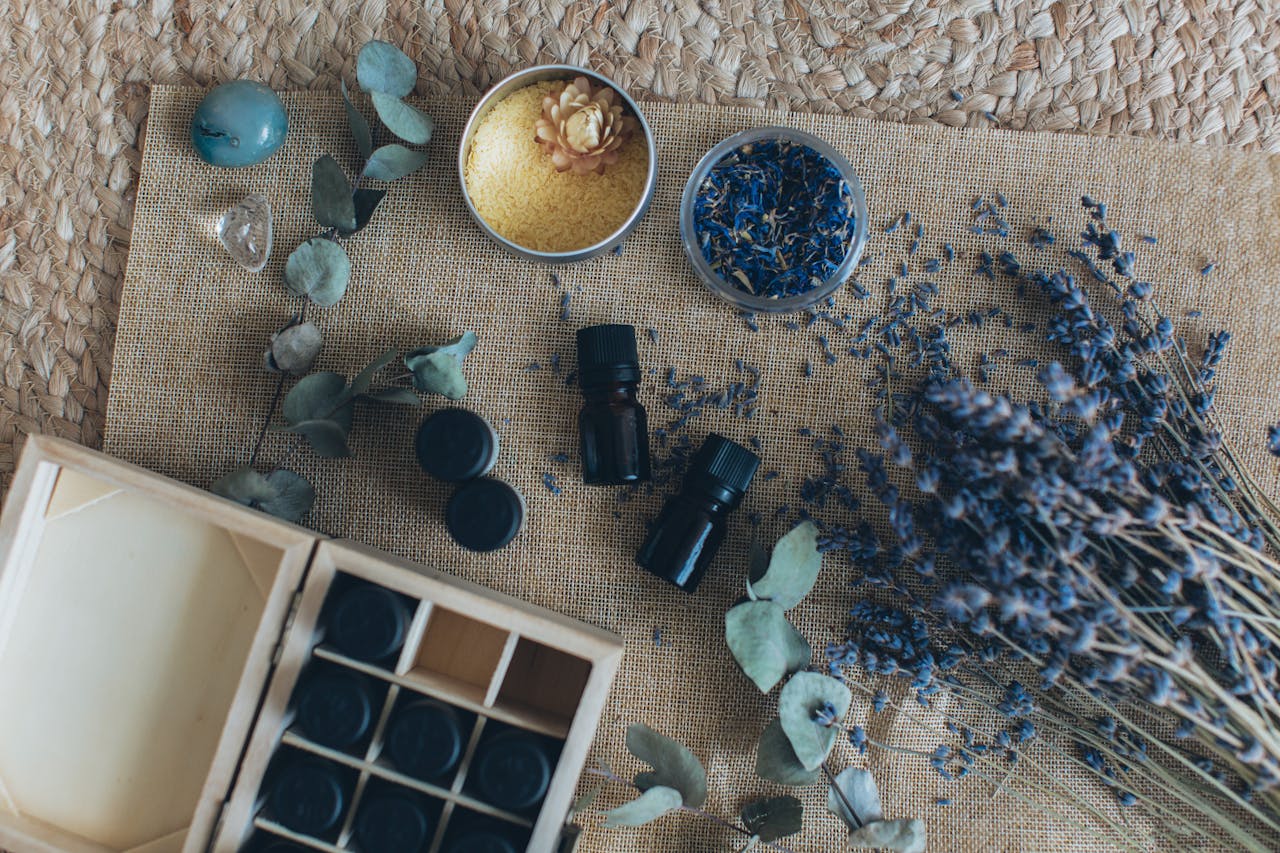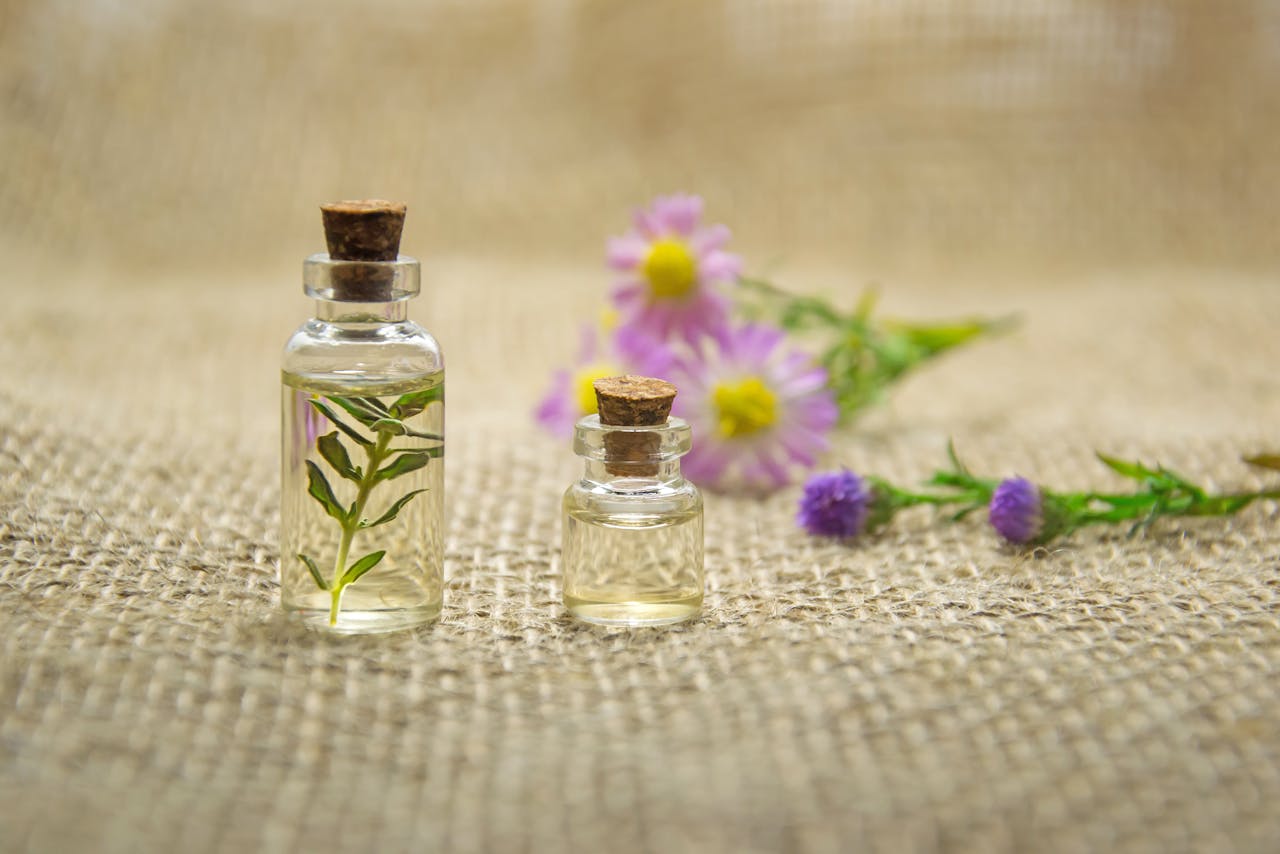The Benefits of Aromatherapy
Aromatherapy, also known as essential oil therapy, has been practiced for centuries and is renowned for its ability to enhance physical and emotional well-being. By harnessing the natural extracts from plants, this holistic treatment offers a myriad of health benefits. Here’s a comprehensive look at the benefits of aromatherapy and how you can incorporate it into your daily life.


What is Aromatherapy?
Aromatherapy involves the use of essential oils, which are concentrated plant extracts that retain the natural smell and flavor of their source. These oils are derived from various parts of plants, including flowers, leaves, bark, and roots, through methods like distillation or cold pressing. Each essential oil has unique properties and uses, ranging from relaxation to pain relief.
Methods of Application
There are several ways to use essential oils in aromatherapy:
Inhalation: Using diffusers, steam inhalation, or simply inhaling directly from the bottle.
Topical Application: Diluting with a carrier oil and applying to the skin through massages, baths, or compresses.
Aromatherapy Products: Incorporating essential oils into lotions, creams, or personal care products.
Physical Health Benefits
Pain Relief: Essential oils like peppermint, eucalyptus, and lavender are known for their analgesic properties. They can be particularly effective in alleviating headaches, muscle pain, and joint discomfort. Massaging diluted essential oils into the affected area or using them in a warm bath can provide significant relief.
Improved Digestion: Certain essential oils can aid digestion and relieve symptoms of digestive disorders. Peppermint oil, for instance, is well-known for its ability to reduce bloating, gas, and indigestion. Inhalation or topical application around the abdomen can help soothe digestive issues.
Enhanced Immunity: Some essential oils possess antimicrobial and antiviral properties that can help boost the immune system. Oils like tea tree, eucalyptus, and lemon can help fend off infections and support overall immune health. Diffusing these oils in your home or using them in cleaning solutions can create a healthier environment.
Emotional and Psychological Benefits
Stress and Anxiety Reduction: One of the most popular uses of aromatherapy is for stress and anxiety relief. Lavender, chamomile, and bergamot oils are renowned for their calming effects. Inhalation of these oils through diffusers or personal inhalers can help reduce stress levels and promote relaxation.
Improved Sleep: Aromatherapy can be highly effective for improving sleep quality. Essential oils like lavender, valerian, and cedarwood have sedative properties that can help you fall asleep faster and enjoy a deeper, more restful sleep. Adding a few drops to your pillow or using a diffuser in the bedroom can create a tranquil sleeping environment.
Mood Enhancement: Aromatherapy can have a positive impact on your mood and overall sense of well-being. Citrus oils like orange, lemon, and grapefruit are known for their uplifting and energizing effects. Using these oils in the morning can help start your day on a positive note, while floral oils like rose and jasmine can promote a sense of joy and tranquility.
Cognitive Benefits
Enhanced Focus and Concentration: Essential oils such as rosemary, peppermint, and basil can help improve focus and concentration. Inhalation of these oils can stimulate the mind, enhance cognitive performance, and improve memory. They are particularly useful during study sessions or long working hours.
Relief from Mental Fatigue: When you’re feeling mentally exhausted, essential oils can provide a refreshing boost. Oils like peppermint and eucalyptus can help clear the mind and increase alertness. Diffusing these oils in your workspace can help combat mental fatigue and maintain productivity.
Incorporating Aromatherapy into Daily Life
Creating a Relaxing Atmosphere: Using a diffuser in your home can fill the air with pleasant aromas, creating a calming and inviting atmosphere. This can be particularly beneficial in areas where you relax or entertain guests.
Personal Care Routine: Incorporate essential oils into your daily personal care routine by adding them to your bath, using them in homemade lotions, or creating your own natural perfumes. This not only enhances the benefits but also allows you to enjoy the therapeutic properties of the oils throughout the day.
On-the-Go Solutions: For those constantly on the move, portable diffusers or essential oil roller bottles can be convenient. These allow you to enjoy the benefits of aromatherapy anywhere, whether you’re at work, in the car, or traveling.


Aromatherapy offers a wealth of benefits for physical, emotional, and cognitive health. By understanding the properties and uses of different essential oils, you can incorporate this ancient practice into your modern lifestyle. Whether you’re seeking relief from pain, looking to reduce stress, or simply wanting to enhance your overall well-being, aromatherapy provides a natural and effective solution.












